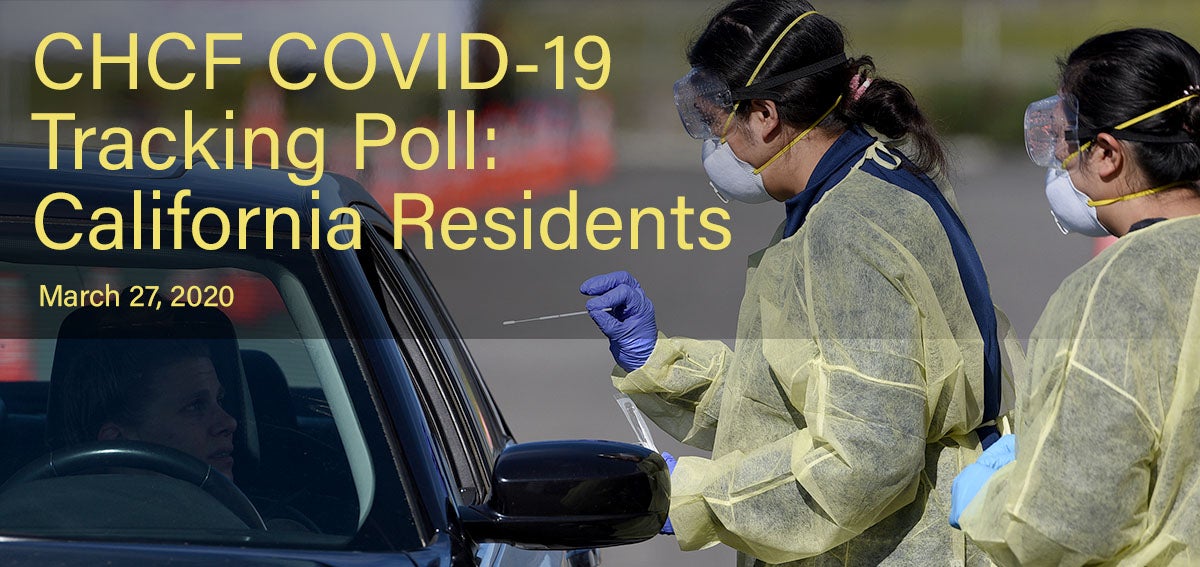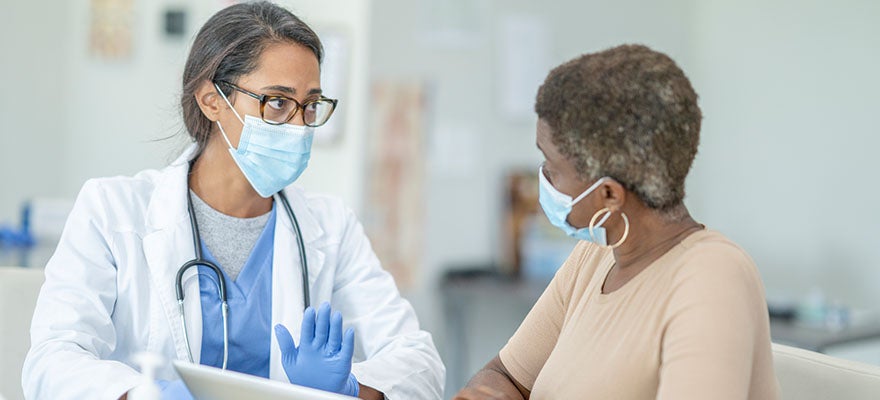
Previous Poll Results
Get all the results from CHCF’s surveys of California’s health care providers and the general public in this collection.
To help Californians and state policymakers understand evolving demands on the state’s health care system during the COVID-19 pandemic, CHCF is working with survey firms on two fronts. CHCF and global survey firm Ipsos are assessing residents’ desire for COVID-19 testing and their access to health care services. CHCF and Truth on Call, a physician market-research firm, are surveying hospital-based critical care, emergency department, and infectious disease physicians about staffing and the availability of testing, personal protective equipment (PPE), intensive care unit beds, and ventilators. Download the charts and data for your own presentations and analyses.
CHCF and survey firm Ipsos are conducting a weekly tracking survey of Californians’ experience with COVID-19 testing and their access to health care services. The first survey was released March 27, 2020, and shows that few Californians (0.8%) report trying and failing to receive a COVID-19 test in the previous week. While 11% of state residents say that they would like to get tested for the disease, 68% say they do not need to be tested now.
Californians with incomes at or below 138% of the federal poverty guidelines (PDF) are more likely to want a COVID-19 test (18% versus 11%). This may reflect the fact that Californians with low incomes are more likely to have chronic conditions that put them at higher risk from complications if they contract the new coronavirus that causes COVID-19.
In response to a question about their experience with health care over the last seven days, 68% of Californians say they had not sought care. The survey found some evidence that people are forgoing health care visits over concern about coronavirus. Less than 4% of residents report being unable to access care in a timely manner, saying they either tried and failed to make an appointment or that the wait was longer than they thought reasonable.
Californians with incomes at or below the poverty guidelines are more likely to have seen a health care provider in person in the past week relative to the overall population (18% vs. 10%). However, Californians with low incomes are also more likely to report having to wait longer than they thought reasonable for an appointment. This is consistent with findings of previous surveys showing access challenges among patients with low incomes.
Changing Rules
In light of state and federal regulations being modified to make more health care providers eligible to be reimbursed for video or phone appointments, CHCF/Ipsos is also tracking the experience of people who visited a health care provider by video or phone. In Friday’s survey, 3.6% of Californians report having a telehealth appointment in the past week.
The data released today represent a benchmark. CHCF/Ipsos will continue this survey as the pandemic develops in the coming weeks. See all of the results in our collection.
This survey was conducted online in Ipsos’s Omnibus using the web-enabled “KnowledgePanel,” a probability-based panel designed to be representative of the California general population, not just the online population. The study consisted of 1,113 representative interviews conducted among California residents who were at least 18 years old between March 20 and March 25, 2020. The margin of error is +/-3.1 percentage points.
Authors & Contributors



